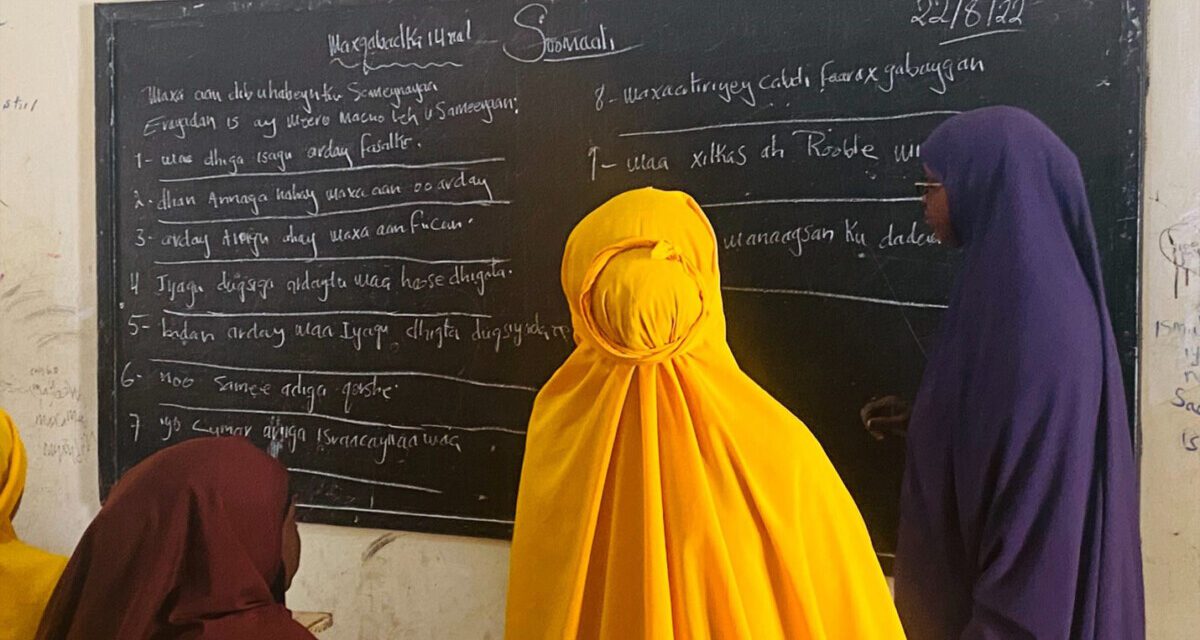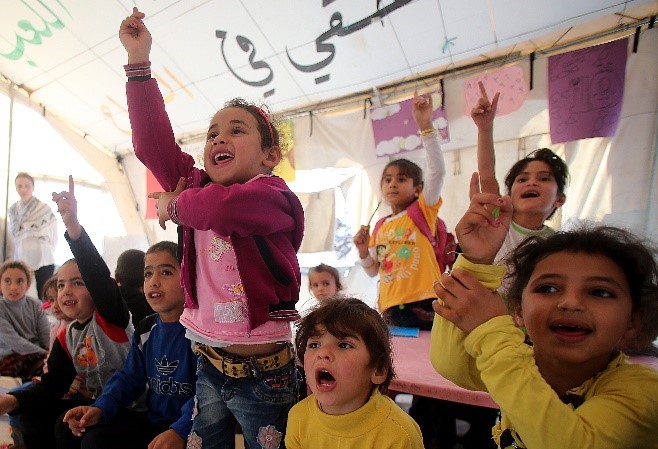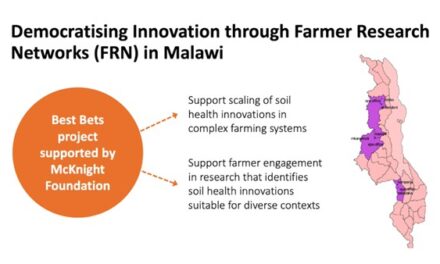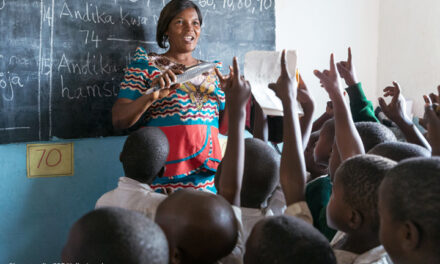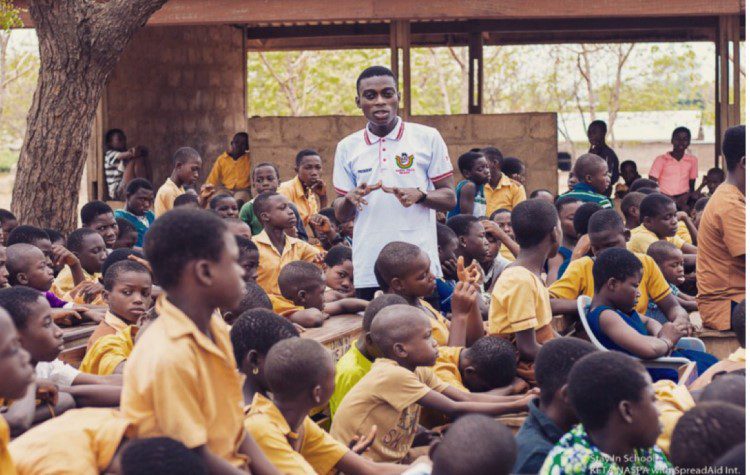This blog was written by Paul Odhiambo, CARE Somalia/ AGES MEL Manager, and Lotte Renault, Director of Research, CARE USA. It is based on a presentation from the UKFIET 2023 conference.
How can we improve education results for the most vulnerable children, if their needs are not visible in system data?
How can education systems foster gender equity and social inclusion, if they lack data on how the intersectionality of gender, disability, language exclusion, and displacement affects education outcomes?
At the UKFIET conference, our presentation discussed how the use of disaggregated data to track access, retention, and learning outcomes is informing efforts by Somalia’s Federal Ministry of Education, Culture and Higher Education (MOECHE) to boost access and train teachers. We reflected on how an FCDO/Girls’ Education Challenge-funded project – Adolescent Girls’ Education in Somalia/AGES – invested in collecting ‘extremely disaggregated’ data in conflict-affected areas to better understand education outcomes among girls facing multiple levels of exclusion.
The emerging data showed striking differences between sub-groups of marginalised girls, challenging the idea that they represented a homogeneous group, despite high levels of vulnerability. While the average literacy learning gain was 18 percentage points after a two-year exposure period, some groups – i.e. girls lacking reliable access to water, girls with disabilities – had much higher learning gains (27 percentage points), demonstrating that the project’s approach was effectively supporting their needs. Conversely, girls from an occupational minority, second language speakers, and married girls, had significantly lower learning gains over time than their peers, ranging from only 6 percentage points to 16 percentage points. The results – the first of their kind in Somalia – informed adaptations to teacher training and the design of remedial learning materials and approaches.
At a systems level, the results informed capacity building of state Ministries of Education teacher coaches and the design of the first national learning assessments conducted by the MOECHE in 2021-2022, through Global Partnership for Education funding. National level results showed significant disparities in learning outcomes, quantifying how the intersection of gender, disability, language, and food insecurity affected students. The results informed a national teacher training programme, which trained 2,000 teachers towards a degree in 2022-2023. The findings also supported the refinement of a national capitation grants programme in 2022, contributing to boosting the enrolment of displaced children and children living with disabilities. Most importantly, the results made learning disparities visible – and served as a lever of change. The data also informed the development of Somalia’s Partnership Compact, which focuses heavily on gender equity and social inclusion.
These experiences illustrate the possibilities behind the collection and use of disaggregated data, and the importance of assessing intersectionality in project and system-level studies. This is particularly true in fragile and conflict-affected contexts, challenging the narrative that accurate, disaggregated data is not available to inform system-level efforts towards gender equity and social inclusion. When data is available in a timely manner and is sufficiently disaggregated, its use can be transformational, and nowhere is this truer than in fragile contexts such as Somalia.

